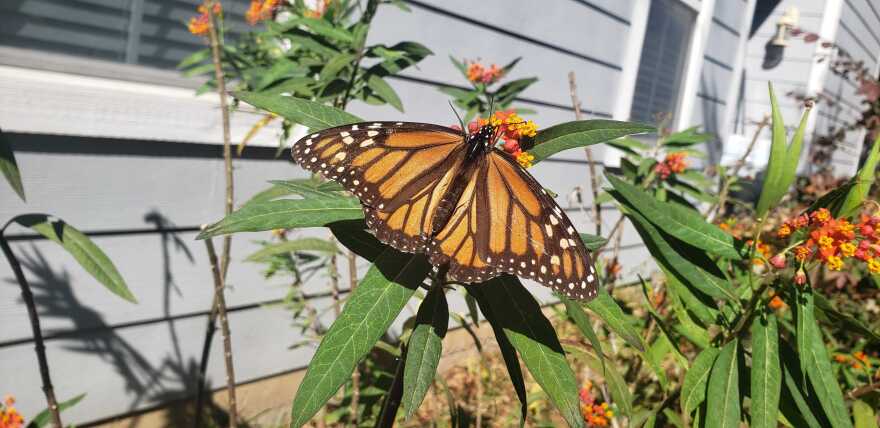Despite qualifying for protections under the federal Endangered Species Act, the monarch butterfly will not be added to the list this year.
"After looking at all the information that we gathered and weighing it against the criteria in the Endangered Species Act, we determined that listing is warranted," said Georgia Parham, a public affairs specialist with the U.S. Fish and Wildlife Service. However, she said, other species are "higher priority."
Parham said the agency is looking at about 160 other species that could qualify for listing as threatened or endangered.
The monarch's population has been declining for two decades, and the U.S. Fish and Wildlife Service has spent the last four years assessing whether it qualifies for protection.
About 90% of the world’s entire monarch population is found in North America. Texas is a key pitstop for the iconic insect as it migrates between breeding grounds in the northern United States and Canada and overwintering grounds in Mexico.
The agency will be keeping an eye on the monarch and review its status each year, Parham said. “We intend in fiscal year 2024 to propose it for listing under the Endangered Species Act."
In the meantime, she said, there are many conservation efforts underway to protect the orange-and-black-winged butterfly.
“We are laser-focused on monarch conservation," Parham said. "Not only just as the Fish and Wildlife Service, but as a partner with so many other states, tribes, conservation organizations, the agricultural community, the whole range of partners that are looking to help the monarch.”
She said individuals can take steps to help the monarch themselves, such as planting milkweed in their yards. (However, as KUT reports, it’s important to select the correct type of milkweed and ensure it has not been treated with an insecticide known as “neonicotinoid.")
“It’s one of those species that people can actually pitch in and help,” she said.
Parham encourages people to engage in conservation efforts until the monarch can be listed as threatened or endangered, “because they really do make a difference.”






